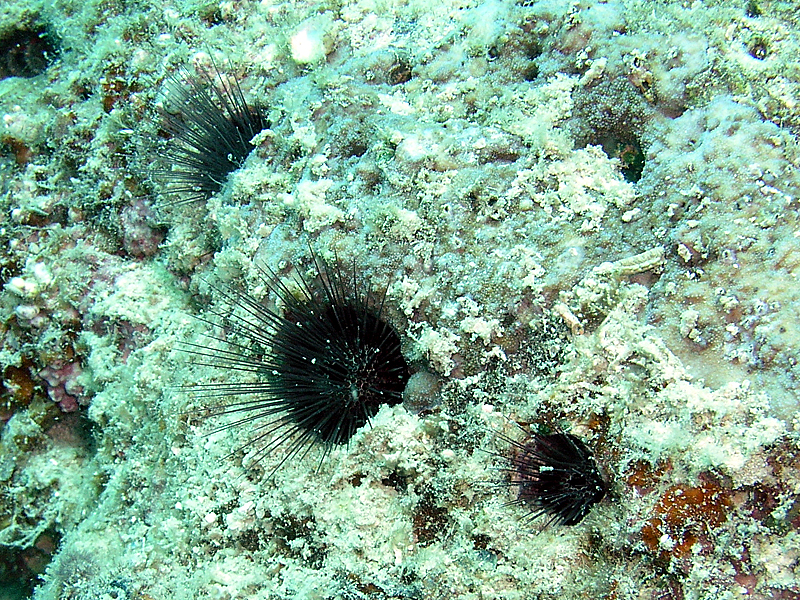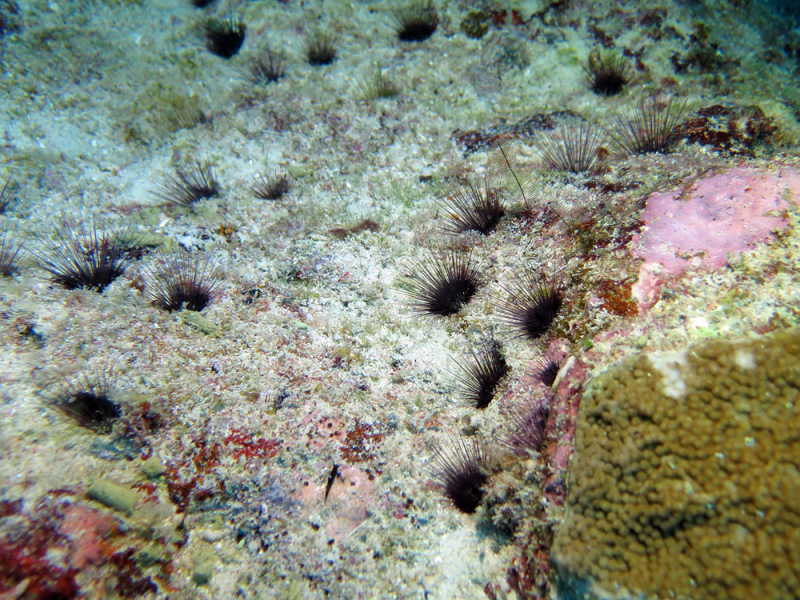Colours
Distinguishing features
These small urchins are always found with their long, delicate spines protruding from a hole that the urchin has excavated for itself. The entire animal can only be seen if removed - with difficulty - from its hole (a permit is required!). Two species are known from northern Australia, Echinostrephus aciculatus and Echinostrephus molaris. They are distinguished by the number of pore pairs, a character that cannot be seen in the field. In both species, the test is tall relative to its width and is flat on top. Spines on the lower part of the test are very short.
Size
- Size data has not been obtained.
Depth range
- Depth range data is not yet available.
Synonyms
Distribution
Distribution and habitat preferences
Echinostrephus aciculatus is common on granite slopes at North Point and other places with suitable habitat. Despite this, there are no specimens in the Australian Museum collection from Lizard Island, perhaps due to the difficulty of extracting them intact from their holes. A single specimen of Echinostrephus molaris is in the AM collection from the seaward side of Yonge Reef.
Web resources
References
References that assist with identification
- Clark, A.M. and F.W.E. Rowe (1971). Monograph of shallow-water Indo-west Pacific echinoderms British Museum (Natural History), London.


